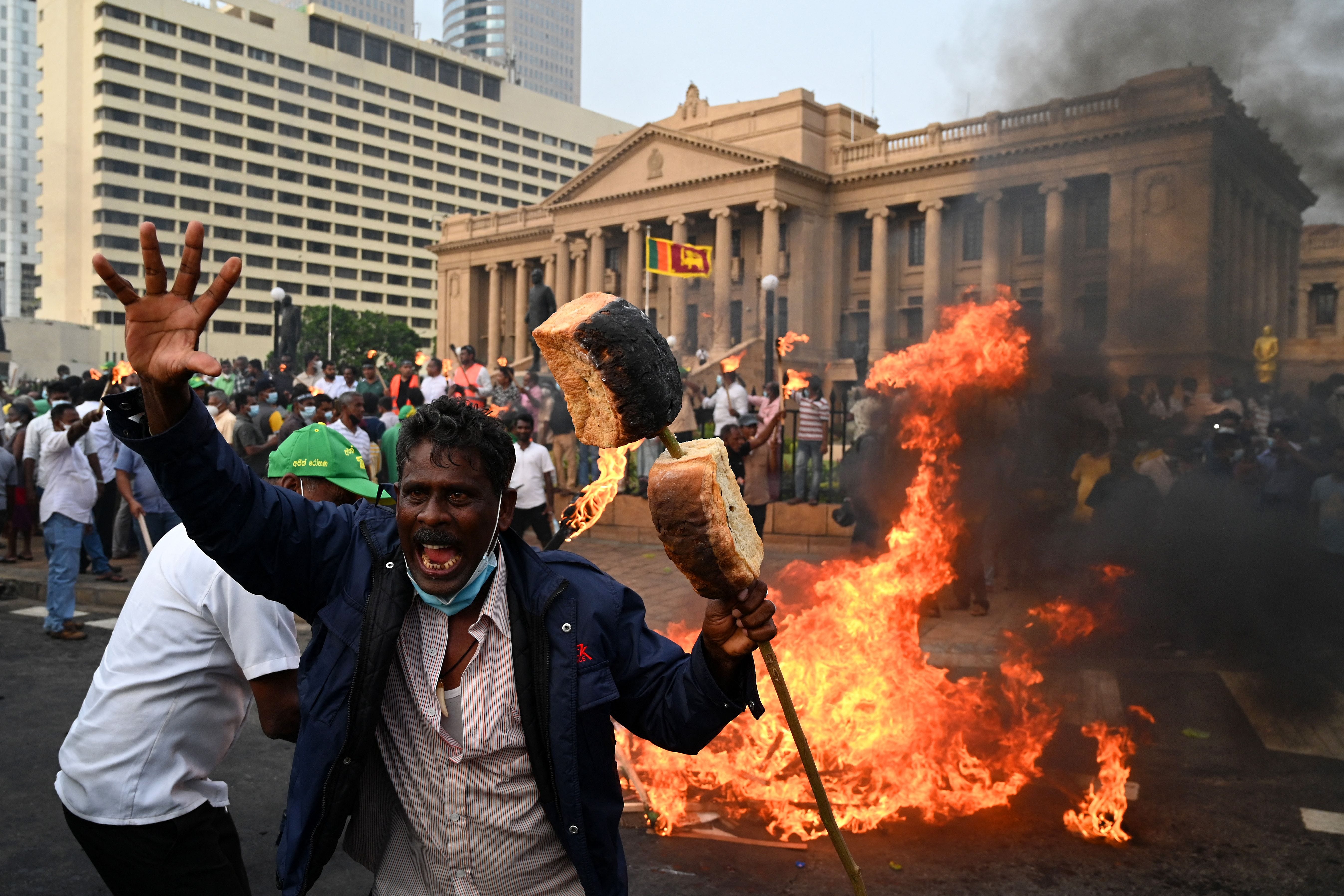Sri Lanka Just Fell. What Do We Have to Do With It?
The underlying reason for the fall of Sri Lanka is that its leaders—starting with former President Maithripala Sirisena and continuing with his successor, the recently deposed Gotabaya Rajapaksa—fell under the spell of Western green elites peddling organic agriculture and “ESG,” which refers to investments made following supposedly higher Environmental, Social, and Governance criteria. Sri Lanka has a near-perfect ESG score of 98—higher than Sweden (96) and the United States (51).
What does having such a high ESG score mean? In short, it meant that Sri Lanka’s two million farmers were forced to stop using fertilizers and pesticides, laying waste to its critical agricultural sector. (Never mind that Tesla has been booted from the ESG S&P Index, while Exxon Mobil is in the top ten. None of it makes much sense.)
To be sure, there were other factors behind Sri Lanka’s fall. Covid lockdowns and a 2019 bombing hurt tourism—an industry that usually generates between $3 billion and $5 billion a year. Sri Lanka racked up huge foreign debt, with China lending the country billions of dollars as part of its Belt and Road initiative. Transportation costs have rocketed 128 percent since May due to rising oil prices. And overall trends have not helped: Since 2012, growth has been declining.
But the biggest problem was Sri Lanka’s chemical fertilizer ban, which passed last year and was central to the country’s effort to comply with ESG.
The numbers are shocking.
One-third of Sri Lanka’s farm lands were dormant in 2021 due to the fertilizer ban. Over 90 percent of Sri Lanka’s farmers had used chemical fertilizers before they were banned. After they were banned, an astonishing 85 percent experienced crop losses. Rice production fell 20 percent and prices skyrocketed 50 percent in just six months. Sri Lanka had to import $450 million worth of rice despite having been self-sufficient just months earlier. The price of carrots and tomatoes rose fivefold. All this had a dramatic impact on the more than 15 million people of the country’s 22 million people who are directly or indirectly dependent on farming.

 www.commonsense.news
www.commonsense.news
The underlying reason for the fall of Sri Lanka is that its leaders—starting with former President Maithripala Sirisena and continuing with his successor, the recently deposed Gotabaya Rajapaksa—fell under the spell of Western green elites peddling organic agriculture and “ESG,” which refers to investments made following supposedly higher Environmental, Social, and Governance criteria. Sri Lanka has a near-perfect ESG score of 98—higher than Sweden (96) and the United States (51).
What does having such a high ESG score mean? In short, it meant that Sri Lanka’s two million farmers were forced to stop using fertilizers and pesticides, laying waste to its critical agricultural sector. (Never mind that Tesla has been booted from the ESG S&P Index, while Exxon Mobil is in the top ten. None of it makes much sense.)
To be sure, there were other factors behind Sri Lanka’s fall. Covid lockdowns and a 2019 bombing hurt tourism—an industry that usually generates between $3 billion and $5 billion a year. Sri Lanka racked up huge foreign debt, with China lending the country billions of dollars as part of its Belt and Road initiative. Transportation costs have rocketed 128 percent since May due to rising oil prices. And overall trends have not helped: Since 2012, growth has been declining.
But the biggest problem was Sri Lanka’s chemical fertilizer ban, which passed last year and was central to the country’s effort to comply with ESG.
The numbers are shocking.
One-third of Sri Lanka’s farm lands were dormant in 2021 due to the fertilizer ban. Over 90 percent of Sri Lanka’s farmers had used chemical fertilizers before they were banned. After they were banned, an astonishing 85 percent experienced crop losses. Rice production fell 20 percent and prices skyrocketed 50 percent in just six months. Sri Lanka had to import $450 million worth of rice despite having been self-sufficient just months earlier. The price of carrots and tomatoes rose fivefold. All this had a dramatic impact on the more than 15 million people of the country’s 22 million people who are directly or indirectly dependent on farming.

Sri Lanka Just Fell. What Do We Have to Do With It?
The anti-growth environmental movement deserves much of the blame.

